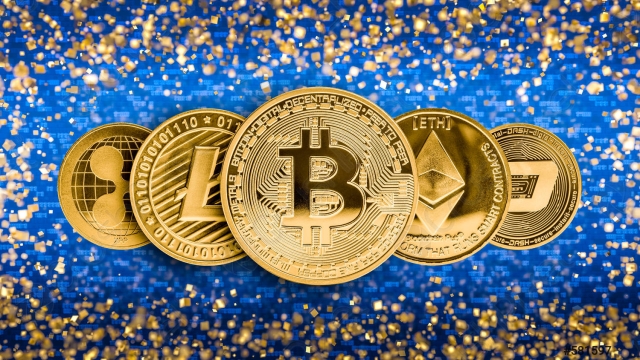![]()
In recent years, the world of finance has experienced a significant evolution thanks to the advent of crypto. This digital currency has created a paradigm shift in traditional financial systems, offering individuals a decentralized alternative to the centralized structures of banks and governments. With the rise of cryptocurrencies such as Bitcoin and Ethereum, the concept of decentralized finance, or DeFi, has gained traction, opening up new possibilities for conducting financial transactions without intermediaries. This revolutionary technology has not only captured the imagination of tech enthusiasts but has also sparked interest among mainstream investors and financial institutions.
Evolution of Decentralized Finance
In the ever-changing world of crypto, decentralized finance (DeFi) has emerged as a revolutionary concept. DeFi offers a new way to conduct financial transactions without the need for traditional intermediaries.
The beginnings of DeFi can be traced back to the launch of Bitcoin in 2009. Bitcoin introduced the concept of a decentralized monetary system, inspiring developers to explore other decentralized applications and protocols.
Ethereum, with its smart contract functionality, propelled the DeFi movement further. Smart contracts enabled the creation of decentralized applications (dApps) that could automate and execute financial transactions with transparency and security.
Kucoin Referral Code
Key Components of DeFi Ecosystem
In the world of decentralized finance, the key components that form the DeFi ecosystem are essential for understanding how this innovative sector operates. One crucial element is smart contracts, which are self-executing contracts with the terms directly written into code. These smart contracts enable decentralized applications to perform various functions without the need for intermediaries.
Another vital component is liquidity pools, which play a significant role in DeFi protocols by providing liquidity for various assets. Participants contribute their assets to these pools, which are then used to facilitate trades and transactions within the DeFi ecosystem. The concept of liquidity pools has revolutionized the idea of market-making and trading in a decentralized manner.
Furthermore, decentralized exchanges (DEXs) serve as the cornerstone of the DeFi ecosystem, allowing users to trade cryptocurrencies directly without the need for a centralized intermediary. These platforms operate using smart contracts and automated market makers to enable peer-to-peer trading while maintaining security and transparency. DEXs have gained popularity for their ability to provide users with more control over their funds and reduce the risk of security breaches.
Challenges and Opportunities Ahead
Driving mass adoption of crypto is an ongoing challenge in the financial world. Despite the growing interest, regulatory uncertainties and security concerns continue to pose significant hurdles. However, as the industry matures, regulatory clarity and innovative security solutions are emerging, paving the way for wider acceptance and integration.
One of the key opportunities ahead in the crypto landscape is the potential for financial inclusion on a global scale. Decentralized finance has the power to provide financial services to the unbanked and underbanked populations, offering them access to banking, lending, and investment opportunities that were previously out of reach. This democratization of finance has the potential to reshape traditional banking systems and empower individuals worldwide.
As the crypto ecosystem evolves, scalability remains a critical challenge. The current infrastructure struggles to handle high transaction volumes efficiently, leading to issues such as network congestion and high fees. However, ongoing research and development efforts are focused on scalability solutions like Layer 2 protocols and sharding, which could significantly enhance the scalability of blockchain networks, opening up a plethora of new opportunities for growth and innovation.
